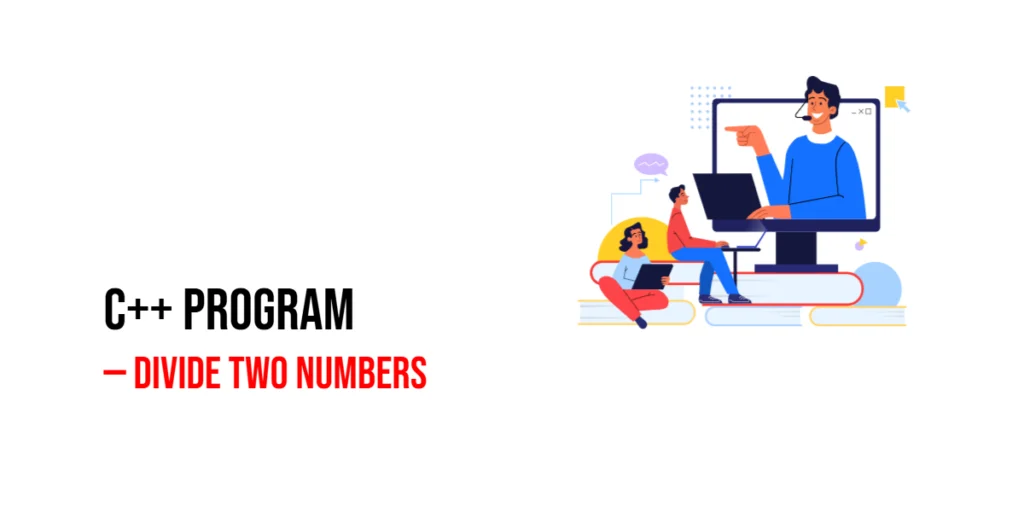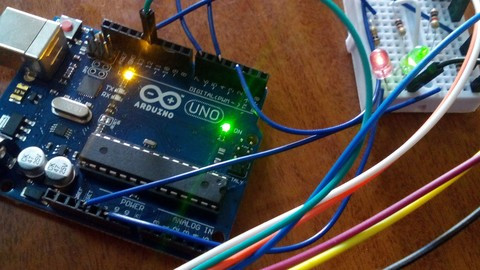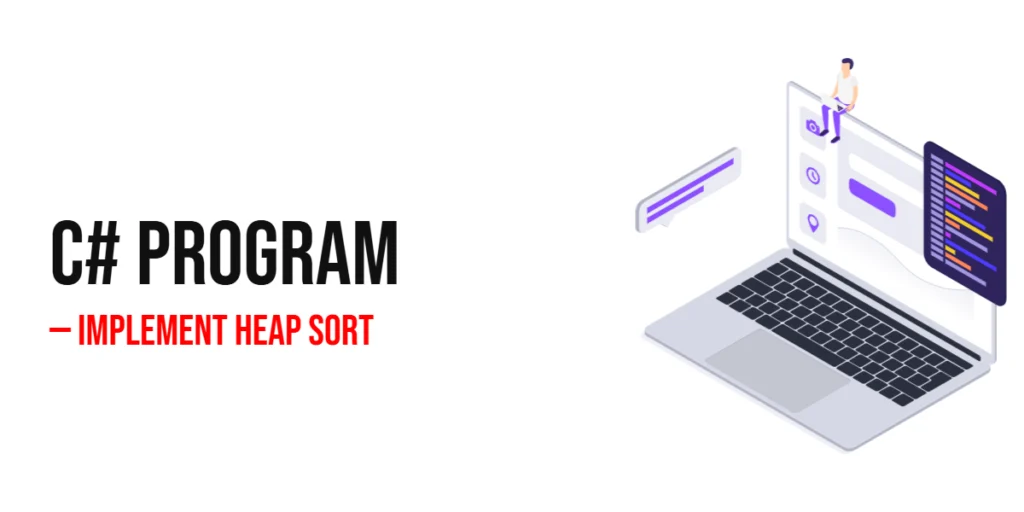Learning C++ is exciting, and one of the first arithmetic operations to master is division. Division is essential in everything from simple calculators to complex scientific and financial applications. Writing a C++ program to divide numbers teaches beginners about variables, arithmetic operations, input/output, and handling special cases like division by zero. Practicing division in C++ builds a strong foundation for more advanced programming concepts.

with hands-on learning.
get the skills and confidence to land your next move.
Program 1: Divide Numbers Entered by the User
This program allows users to input two numbers and calculates the quotient, helping beginners practice input, output, and basic arithmetic.
#include <iostream>
using namespace std;
int main() {
double num1, num2, quotient;
cout << "Enter the first number: " << endl;
cin >> num1;
cout << "Enter the second number: " << endl;
cin >> num2;
if (num2 != 0) {
quotient = num1 / num2;
cout << "The result of " << num1 << " divided by " << num2 << " is " << quotient << endl;
} else {
cout << "Division by zero is not allowed." << endl;
}
return 0;
}In this program, the user inputs two numbers. We check for division by zero and calculate the quotient, which is stored in a variable. This helps beginners understand how input/output works and why handling errors is important.
Program 2: Divide Numbers Using a Function
This program demonstrates how to divide numbers using a function, which organizes the code and makes it reusable.
#include <iostream>
using namespace std;
double divideNumbers(double a, double b) {
if (b != 0) return a / b;
else return 0; // returning 0 for division by zero (simplified)
}
int main() {
double num1, num2;
cout << "Enter the first number: " << endl;
cin >> num1;
cout << "Enter the second number: " << endl;
cin >> num2;
if (num2 != 0) {
cout << "The result of " << num1 << " divided by " << num2 << " is " << divideNumbers(num1, num2) << endl;
} else {
cout << "Division by zero is not allowed." << endl;
}
return 0;
}Here, the division is done in a function called divideNumbers. Using a function makes the code cleaner and reusable, which is helpful as programs grow larger. Beginners also learn how functions separate logic from input/output.
Program 3: Divide Using Integers vs Doubles
This program demonstrates how using integers truncates the decimal part, while doubles provide precise results.
#include <iostream>
using namespace std;
int main() {
// Using integers
int intNum1 = 7;
int intNum2 = 2;
cout << "Integer division: " << intNum1 << " / " << intNum2 << " = " << intNum1 / intNum2 << endl;
// Using doubles
double doubleNum1 = 7.0;
double doubleNum2 = 2.0;
cout << "Double division: " << doubleNum1 << " / " << doubleNum2 << " = " << doubleNum1 / doubleNum2 << endl;
return 0;
}In the first case, dividing integers 7 by 2 gives 3, because integer division truncates the decimal part. Using double preserves the fractional part, giving 3.5 as the precise quotient. This helps beginners understand why selecting the correct data type is important for accurate division results.
Program 4: Divide Numbers Without User Input
This program divides numbers that are already defined in the code, making it simpler for beginners to focus on the division operation.
#include <iostream>
using namespace std;
int main() {
double num1 = 50.0;
double num2 = 5.0;
if (num2 != 0) {
cout << "The result of " << num1 << " divided by " << num2 << " is " << num1 / num2 << endl;
} else {
cout << "Division by zero is not allowed." << endl;
}
return 0;
}Here, the numbers are assigned directly to variables. This approach lets beginners focus on the division operation without worrying about user input or typing errors.
Program 5: Divide Numbers Directly Without Variables
This program divides numbers directly in the cout statement without using variables, providing the simplest form of division.
#include <iostream>
using namespace std;
int main() {
cout << "The result of 20 divided by 4 is " << 20.0 / 4.0 << endl;
return 0;
}In this program, the division happens directly inside the cout statement. This is ideal for absolute beginners to quickly see how the division operator works in C++.
Program 6: Divide Numbers Stored in Variables Without Storing Product
This program stores numbers in variables but calculates and displays the quotient directly, showing flexibility in using variables.
#include <iostream>
using namespace std;
int main() {
double num1 = 30.0;
double num2 = 6.0;
cout << "The result of " << num1 << " divided by " << num2 << " is " << num1 / num2 << endl;
return 0;
}Here, num1 and num2 hold the numbers, but the result is not stored in a separate variable. This demonstrates that you can calculate directly inside the output statement, keeping code concise while still using variables for clarity.
Program 7: Divide Numbers with One Stored in a Variable and One Direct
This program demonstrates how to divide a number stored in a variable by a number used directly, showing flexibility in division operations.
#include <iostream>
using namespace std;
int main() {
double num1 = 48.0;
cout << "The result of " << num1 << " divided by 8 is " << num1 / 8 << endl;
return 0;
}In this program, num1 holds one number, while 8 is used directly in the division. The quotient is calculated inside the cout statement without storing it in a separate variable. This helps beginners understand that you can mix variables and direct values, keeping the code concise while still clear.
Program 8: Divide More Than Two Numbers
This program divides more than two numbers in sequence, teaching beginners about sequential division and error handling.
#include <iostream>
using namespace std;
int main() {
double num1 = 100.0;
double num2 = 5.0;
double num3 = 2.0;
if (num2 != 0 && num3 != 0) {
double result = num1 / num2 / num3;
cout << "The result of dividing " << num1 << " by " << num2 << " and then by " << num3 << " is " << result << endl;
} else {
cout << "Division by zero is not allowed." << endl;
}
return 0;
}This program divides multiple numbers in sequence, illustrating how division works when chaining operations. Beginners also learn the importance of checking each divisor for zero to prevent runtime errors.
Frequently Asked Questions (FAQ)
This section answers common questions beginners have about dividing numbers in C++, helping clarify doubts and reinforce learning.
Q1: What is a variable in C++?
A variable stores data in your program. For example, num1 and num2 hold numbers in these division programs. double variables are used for decimals and precise calculations.
Q2: What happens if I divide by zero?
Dividing by zero is not allowed in C++ and will cause a runtime error. That’s why all programs include checks before performing division.
Q3: Can I divide more than two numbers?
Yes! You can chain division operations, as shown in Program 8. Just ensure no divisor is zero.
Q4: Why use double instead of float?double provides more precision and is better for calculations involving decimal numbers, making results more accurate.
Q5: Can these programs run without a computer?
No. You need a C++ compiler like Code::Blocks, Visual Studio, or online IDEs to run the programs.
Q6: What are common beginner mistakes?
Common mistakes include dividing integers when decimals are needed, forgetting to check for division by zero, or miswriting cin/cout. Testing programs step by step helps avoid errors.
Conclusion
Dividing numbers in C++ is fundamental, teaching variables, data types, arithmetic operations, input/output, and error handling. Practicing these programs helps beginners build confidence and prepares them for more complex tasks. Experimenting with different numbers, decimals, and sequences of division reinforces understanding and makes learning C++ arithmetic operations fun and practical.
Additional & References
For beginners who want to continue learning and practicing, the following resources are highly recommended:
- C++ Documentation – Detailed reference for syntax, functions, and data types.
- TutorialsPoint C++ Tutorial – Beginner-friendly tutorials with step-by-step examples.
- GeeksforGeeks C++ Guide – Practical examples and code snippets to reinforce learning.







